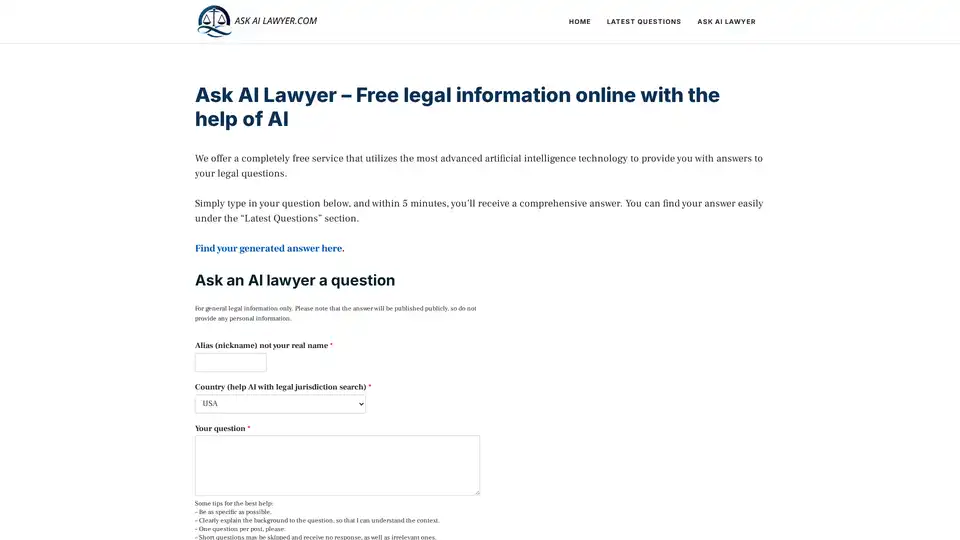
Ask an AI Lawyer
Overview of Ask an AI Lawyer
What is Ask an AI Lawyer?
Ask an AI Lawyer is a free online platform that leverages advanced artificial intelligence to deliver quick answers to your legal questions. Powered by Deepseek's reasoning models and hosted on Groq's infrastructure, this service makes general legal information accessible from anywhere, without the need for costly consultations or endless online searches. It's designed for users seeking straightforward guidance on common legal topics, ensuring responses arrive in as little as 5 minutes. Whether you're dealing with everyday concerns like traffic violations or more complex family law issues, this AI tool simplifies the process while emphasizing that it's for informational purposes only—not professional advice.
How Does Ask an AI Lawyer Work?
The platform operates through a simple, user-friendly interface. Here's a step-by-step breakdown of how it functions:
Submit Your Question: Users enter an alias (not real name) and select their country to help the AI consider jurisdictional nuances. The question field allows up to 250 words, encouraging specificity and context for better results.
AI Processing: Once submitted, the AI analyzes the query by cross-referencing it against a vast database of legal knowledge. It uses open-source reasoning models from Deepseek, processed via Groq for efficient inference, to generate comprehensive, context-aware responses.
Receive and Review Answers: Answers are generated within 5 minutes and published publicly under the "Latest Questions" section. Anyone can search and view them, promoting transparency and community learning.
This streamlined workflow ensures efficiency, but users must agree to terms and conditions, avoiding personal details to protect privacy. The AI filters out non-legal, explicit, or harmful content, maintaining a safe environment.
Key Features of Ask an AI Lawyer
Speed and Accessibility: Get responses in under 5 minutes, 24/7, from any device with internet access.
Broad Coverage: Handles diverse topics including traffic laws (e.g., speeding tickets, DUIs), family law (divorce, child custody), business contracts, employment rights, real estate, wills, and taxes.
Jurisdictional Awareness: By selecting your country (e.g., USA, UK, Canada, France), the AI tailors responses to relevant legal contexts, though it's not a substitute for local expertise.
Free and Public: No fees or sign-ups required; answers are openly shared, allowing others to benefit from similar queries.
Guidelines for Optimal Use: Be specific, provide background, limit to one question per submission, and avoid short or irrelevant prompts to ensure a response.
These features make it a reliable starting point for legal research, reducing the intimidation factor of navigating laws on your own.
Popular Use Cases and Topics
Ask an AI Lawyer excels in addressing everyday legal curiosities and practical dilemmas. Here are some highlighted categories and examples from user interactions:
Traffic Laws and Car Accidents: Questions like "Can you register a car without a license?" or inquiries about retaliatory evictions in accident cases.
Family and Personal Injury: Covering divorce proceedings, child support constitutionality, personal injury claims, and medical malpractice.
Business and Tax Law: Guidance on business startups, contract disputes, tax planning, and employment policies.
Real Estate and Landlord/Tenant Issues: From lease agreements to zoning laws and tenant rights.
Specialized Queries: Topics like adverse possession, subpoenas, class felonies in specific states (e.g., Arizona), or even niche questions such as "Is Nuru Massage Legal in the UK?"
Users often turn to it for quick clarifications before escalating to professionals, saving time on initial research. For instance, someone facing a speeding ticket can get an overview of potential defenses, while a budding entrepreneur might learn about basic business structures.
Who is Ask an AI Lawyer For?
This tool is ideal for a wide audience, including:
Individuals with General Queries: Everyday people puzzled by traffic fines, family disputes, or basic rights without wanting to pay for initial advice.
Students and Researchers: Those studying law or needing quick references for essays, reports, or personal projects.
Small Business Owners: Entrepreneurs seeking foundational knowledge on contracts, taxes, or employment laws to bootstrap their ventures.
Global Users: With support for multiple countries like USA, Canada, UK, Australia, Japan, and more, it's useful for international audiences navigating cross-border issues.
However, it's not suited for those requiring personalized, case-specific counsel—professionals in complex litigation or urgent matters should consult licensed attorneys instead.
Limitations and Why Consult a Real Lawyer
While innovative, AI like that in Ask an AI Lawyer has inherent constraints:
Knowledge Cutoff: Trained on data up to a specific date, it may miss recent law changes, new precedents, or evolving interpretations.
Lack of Nuance: It can't grasp unique personal contexts, emotional factors, or ethical judgments that human lawyers provide.
Jurisdictional Gaps: General training means it might overlook hyper-local rules; always verify with region-specific experts.
No Legal Authority: Responses are for education only—relying on them for decisions could lead to errors.
The platform repeatedly stresses: "Consult with a qualified legal professional before making any decisions." Resources like Avvo, FindLaw, and Lawyers.com are recommended for finding real attorneys. This transparency builds trust and aligns with ethical AI use in sensitive fields like law.
Practical Value and Real-User Benefits
In a world where legal information can feel overwhelming and expensive, Ask an AI Lawyer democratizes access. It empowers users to make informed preliminary decisions, potentially preventing minor issues from escalating. For example, understanding your rights in a landlord dispute could lead to better negotiations, or clarifying tax obligations might avoid penalties. By fostering informed citizenship, it adds tangible value—saving hours of research and reducing anxiety around legal unknowns.
Users appreciate the anonymity and speed; one popular query on child support highlighted how AI can spark deeper discussions. Overall, it's a complementary tool that enhances, rather than replaces, traditional legal services, promoting better outcomes through knowledge.
How to Get the Most Out of Ask an AI Lawyer
To maximize effectiveness:
Craft Clear Questions: Include details like location and background without personal info.
Review Public Answers: Search existing responses for similar issues before submitting new ones.
Follow Up Responsibly: Use insights as a springboard to professional help if needed.
Stay Updated: Since laws change, cross-check AI outputs with current sources.
By following these tips, you'll unlock its full potential as a free, efficient legal research aid. Try it today for your next question and experience the convenience firsthand.
Best Alternative Tools to "Ask an AI Lawyer"
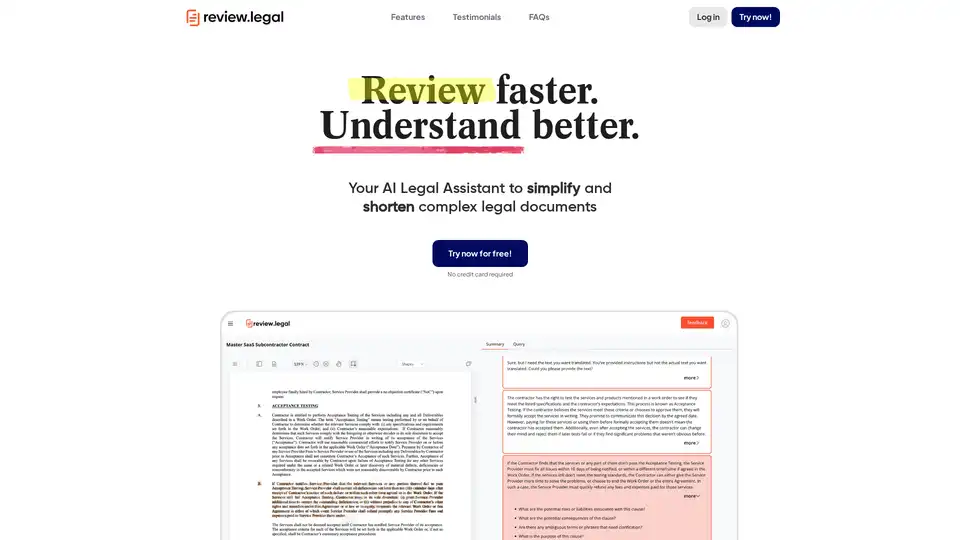
review.legal is an AI legal assistant that simplifies and shortens complex legal documents. It helps users review contracts faster, understand legal jargon, translate documents, and ask questions about their documents.
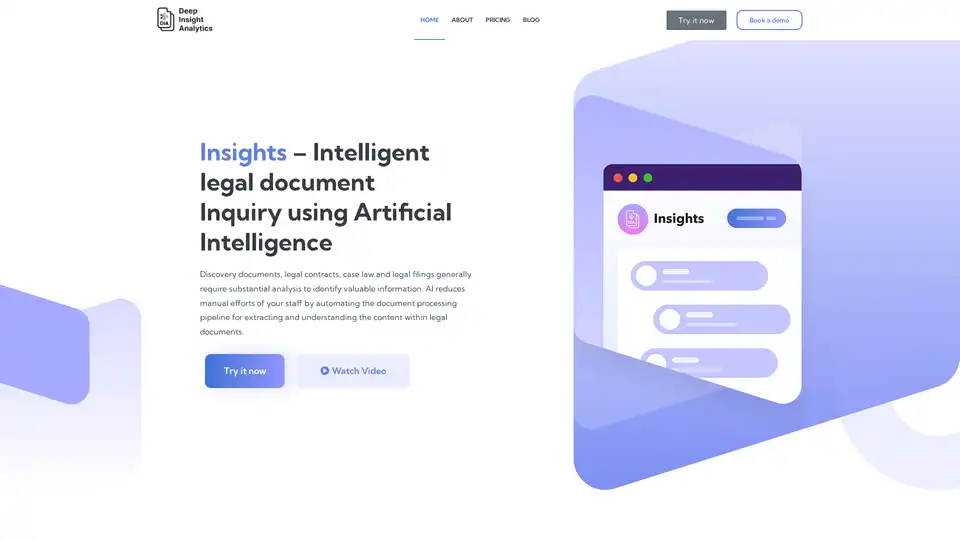
Insights is an AI-powered legal document inquiry tool that automates document processing for extracting and understanding content. It improves accuracy, speeds up data processing, and enhances productivity for legal professionals.
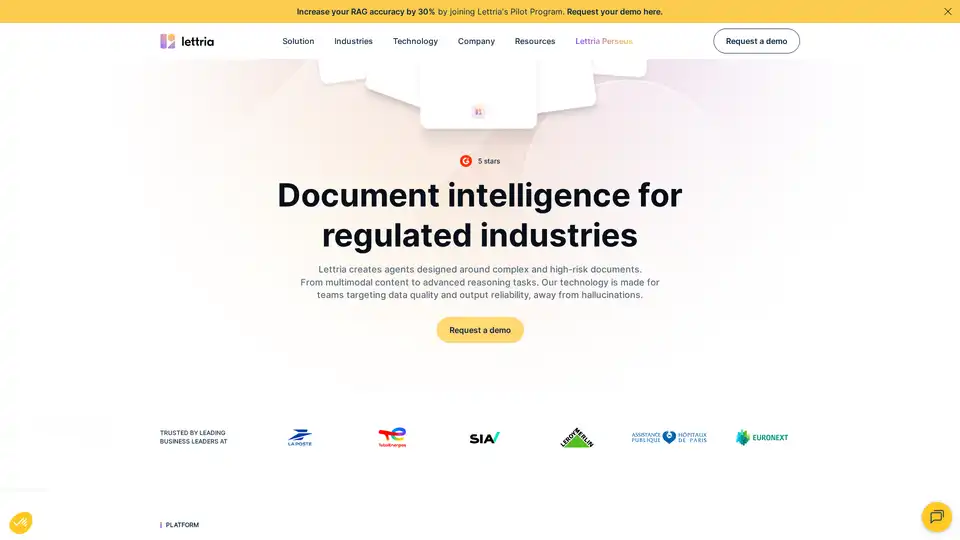
Lettria is an AI platform that transforms unstructured data into structured knowledge using GraphRAG, enhancing decision-making in regulated industries like finance, healthcare, and legal.
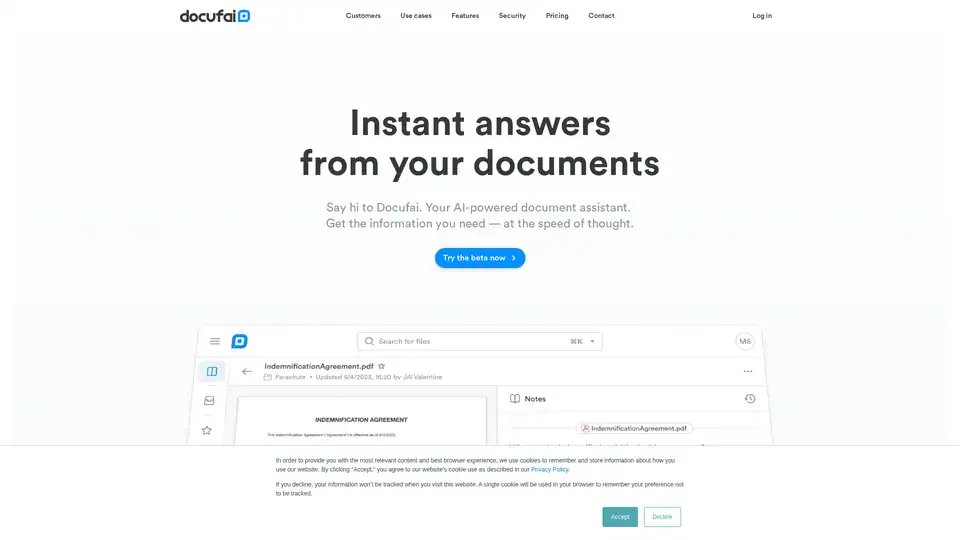
Docufai is an AI-powered document assistant that provides instant answers from your documents. Search, ask questions, summarize, and make decisions quickly.
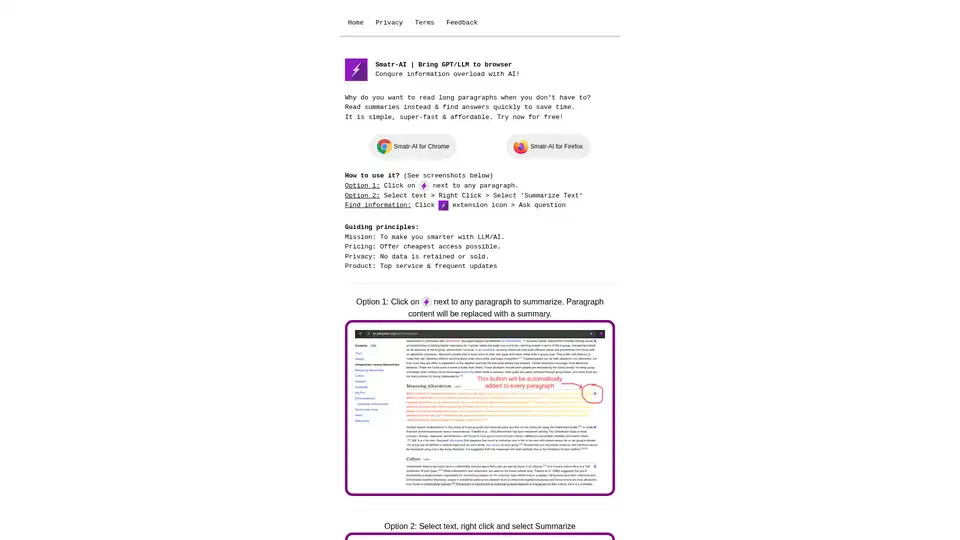
Smatr-AI is a browser extension that integrates GPT/LLM for quick text summarization and finding answers, helping users conquer information overload efficiently.
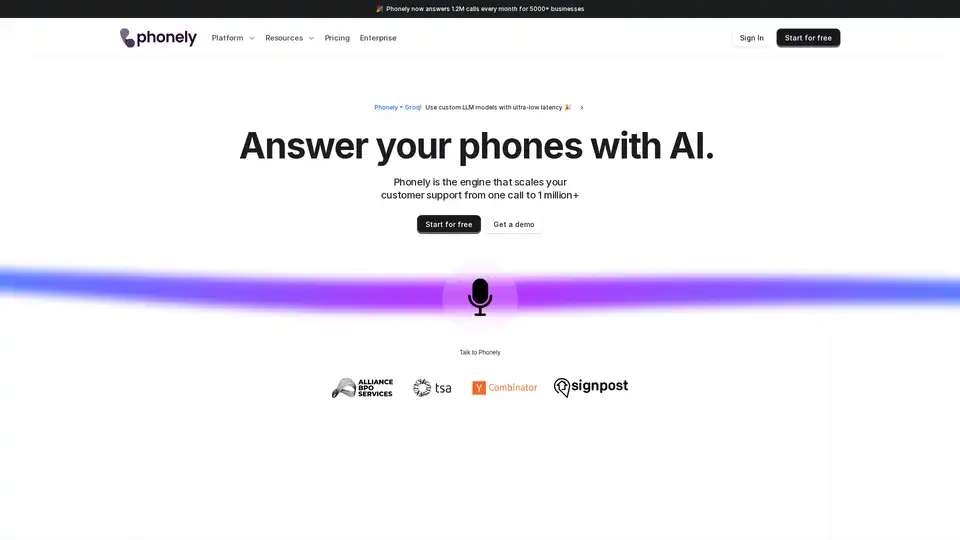
Phonely lets any business answer their phones with AI. Build an AI agent that answers your phone like a person, connects to your calendar, in seconds. Trusted by 5000+ businesses around the world.

Experience seamless AI chat with DeepSeek Nederlands, powered by the advanced DeepSeek-V3 model. Use it for any task, completely free and without registration!
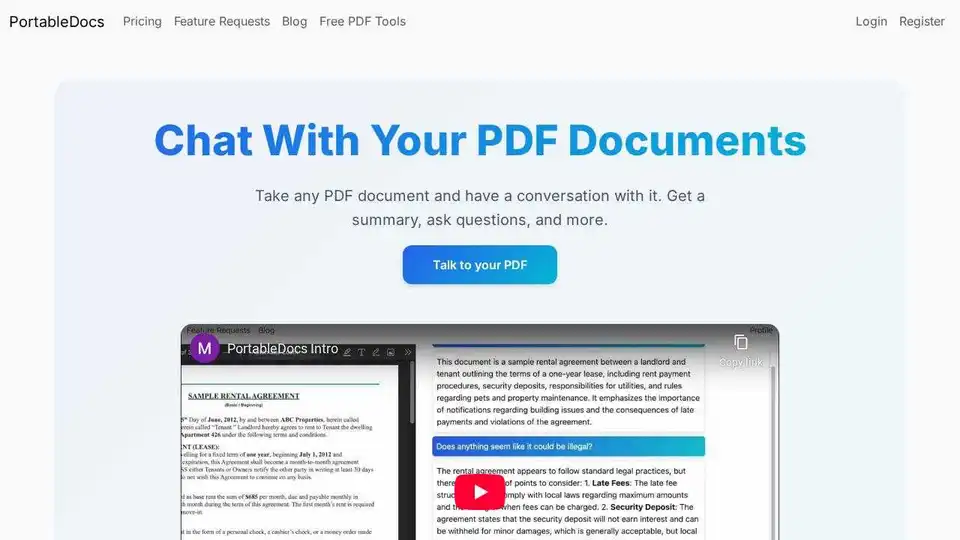
PortableDocs: Chat with your PDFs using AI. Get instant insights, summaries, and answers from your PDF documents with advanced AI-powered analysis. Save time and extract key information quickly.
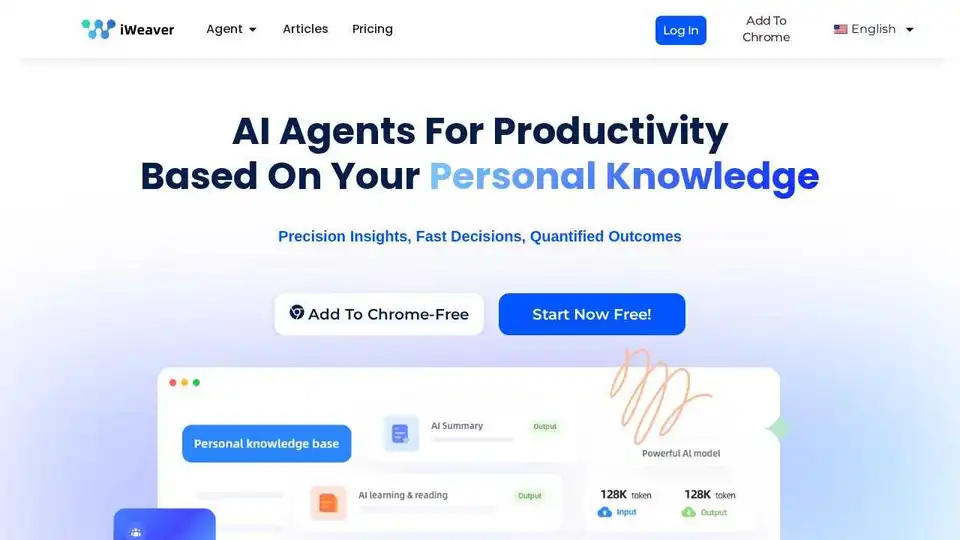
iWeaver is an AI-powered platform for workflow automation & knowledge management. Automate 70%+ of tasks and supercharge productivity with tailored AI agents. Start free!
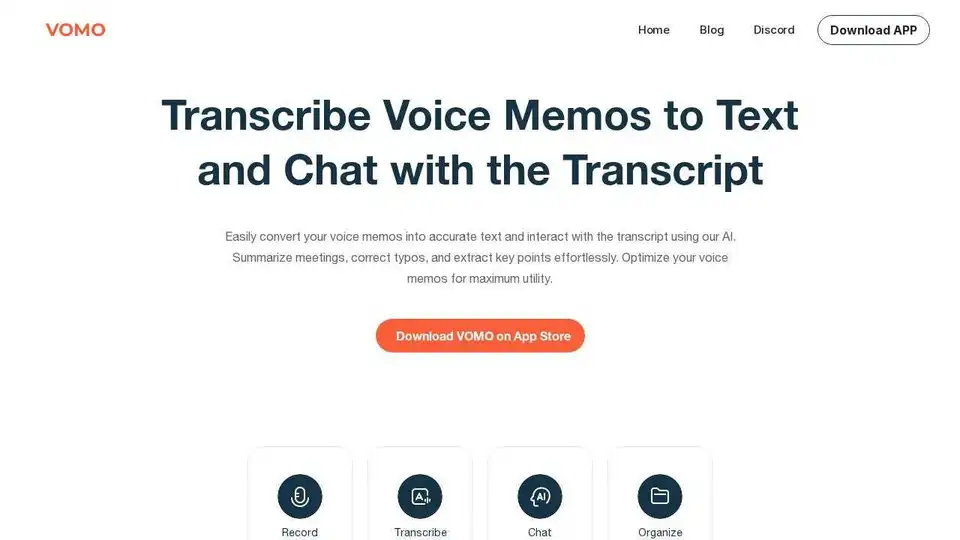
VOMO AI records, transcribes, and summarizes your meetings, delivering clear, customized notes that highlight key points. Transcribe audio and video with 99.9% accuracy.
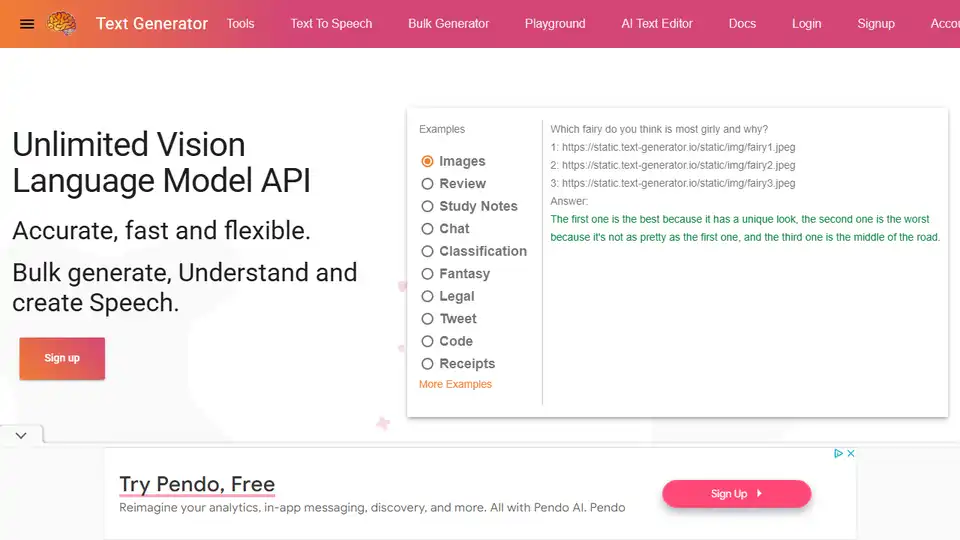
Text Generator provides fast, affordable AI-based text generation with industry-leading privacy and quality. Realistic text generation is now possible.
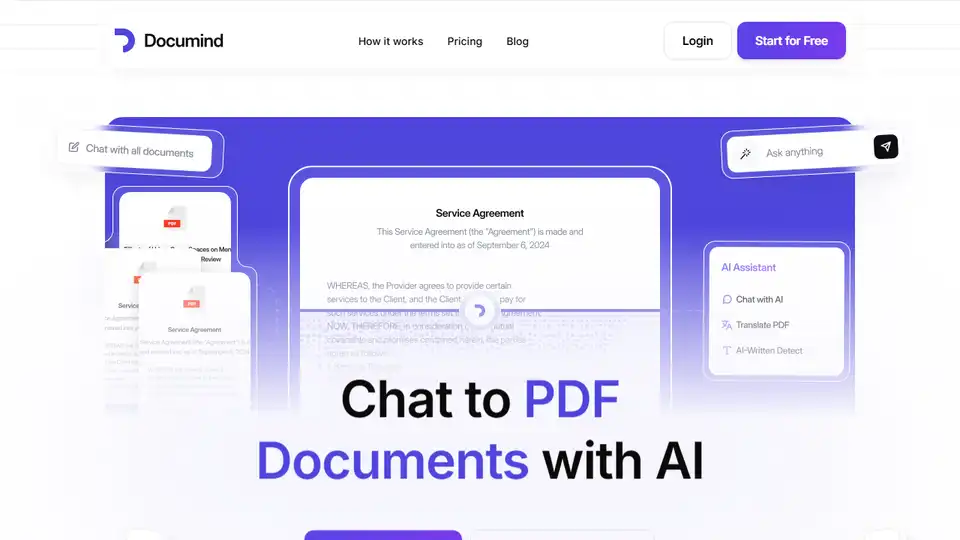
Chat PDF and summarize documents using powerful GPT4 AI. With the help of ChatPDF you can build custom chatbot trained on your pdf and do question answering over your PDF documents.
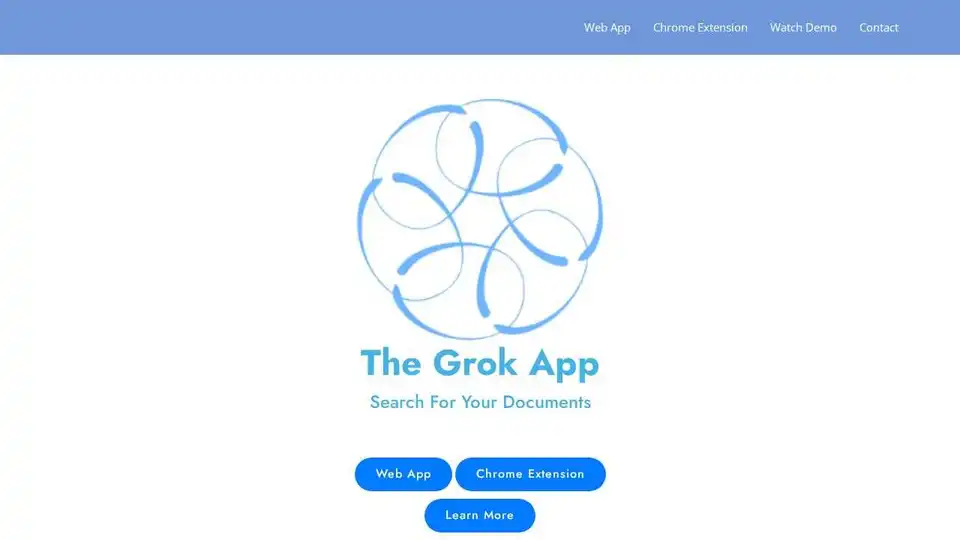
The Grok App is an AI-powered web app and Chrome extension designed to help you search, analyze, and understand documents faster. Uncover hidden patterns and get concise answers.
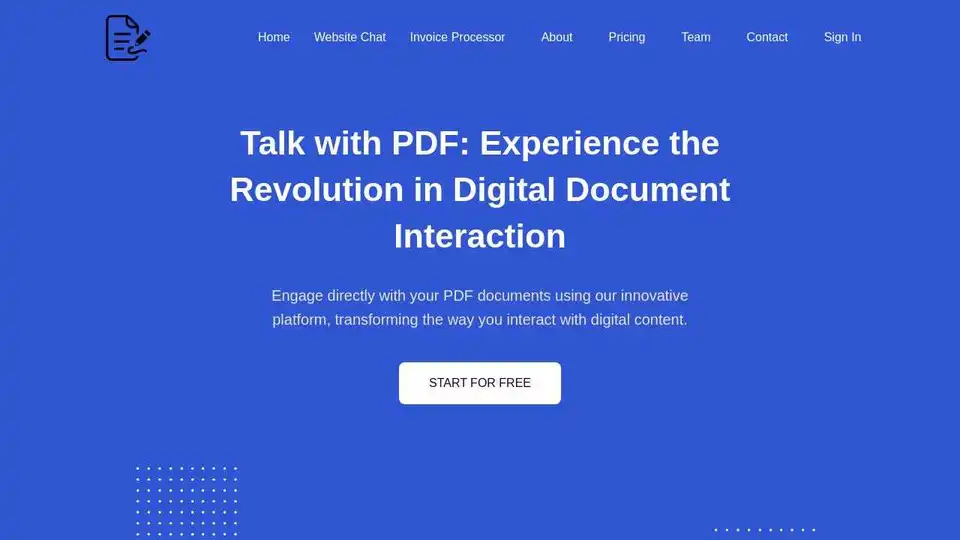
PDF Talk revolutionizes PDF interaction with AI-powered chat features. Summarize, ask questions, and engage with your PDFs like never before. Try it for free!
